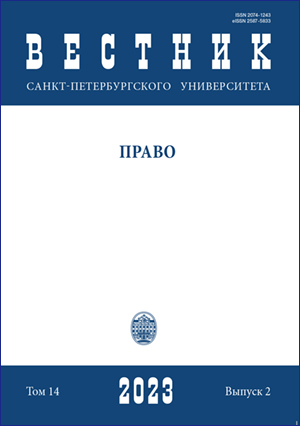On the issue of child-friendly justice in Germany
DOI:
https://doi.org/10.21638/spbu14.2023.210Abstract
For many years, the international community has recognized the fact that children, due to their age, have unique characteristics and needs as subjects of law. They should be taken into account in all spheres of life, but especially when they face justice. Becoming a participant in it as a witness, victim or accused, the child, firstly, becomes involved in the adult world, which is alien to him. Secondly, it becomes more vulnerable in rights, due to its incomplete development and limited capabilities, and therefore needs a different attitude. Finding a balance between public interests and the well-being of the child in the process of seeking justice and the administration of justice is a difficult and urgent task for any State governed by the rule of law. It also seems important due to the fact that the child, while continuing to grow and develop, is still open to positive socialization, in which both the family and the state play the main roles. To study the problem, the goal was set to study the experience of Germany, since this state has long focused its policy on children, developing various juvenile technologies. The specifics of the administration of justice with the participation of a child in it are analyzed, as well as the recommendations of German specialists in the field of psychology, pedagogy and jurisprudence, on adjusting the existing justice system and adapting it to the needs of the child. In particular, such issues as: features of communication with the child during the trial, psychosocial support of the child and the use of audio-video interrogation of the child are considered. According to the results of the study, the authors have drawn conclusions about how effectively the institute works in general and about the feasibility of integrating the German experience into Russia.
Keywords:
child, child-friendly justice, psychosocial support, interrogation of a minor, communication with a child in court, tactics of interrogation of a minor
Downloads
References
Downloads
Published
How to Cite
Issue
Section
License
Articles of "Vestnik of Saint Petersburg University. Law" are open access distributed under the terms of the License Agreement with Saint Petersburg State University, which permits to the authors unrestricted distribution and self-archiving free of charge.






